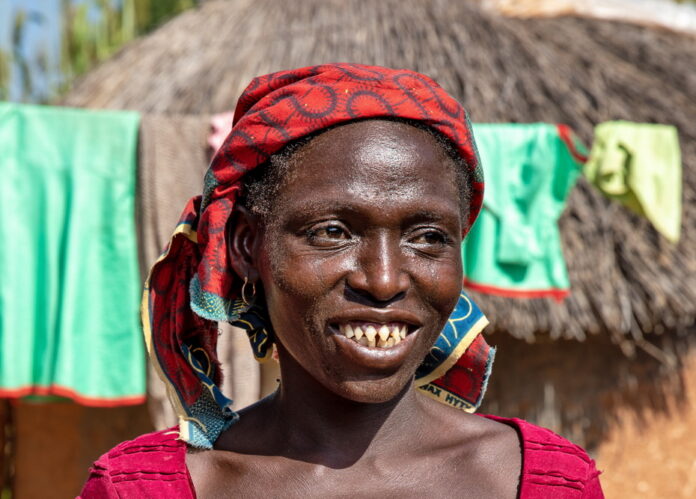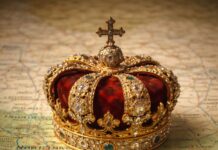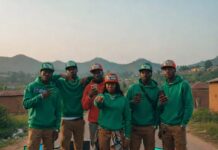The Dukawa of Niger: Preserving tradition and honour in modern times, by Salim Sani
In Niger State and beyond Nigeria, the Dukawa people are renowned for their deep reverence for the hills, their farming lifestyle, and their rich cultural traditions. They are a people of resilience, balancing age-old customs with the demands of modernisation, their story carried in their language, rituals, and way of life.
Origin
The Dukawa trace their roots deep into the early waves of migration that shaped the northwestern belt of Nigeria. Oral history suggests that they moved into their present areas centuries ago, settling in the rocky and hilly terrains that offered protection from slave raids and invasions.
They are closely related to other groups in the Yauri region, sharing certain linguistic and cultural traits. Despite this closeness, the Dukawa have kept their unique identity, living as distinct communities with chieftaincies and elders guiding their affairs.

Their scattered settlements across Kontagora and Yauri reflect their historical need for security. Today, those settlements form a cultural belt, each village echoing the same story of endurance and belonging.
READ ALSO: The Jukun Tribe: Into the enduring traditions of the mighty Kwararafa Kingdom (Pictures)
Economy
The Dukawa people are primarily farmers, working the land with determination. Millet, guinea corn, rice, and yams are their main staples, grown in the valleys and rocky plains. Farming among the tribesmen is more than labour; it is tradition, as families teach children early how to tend the soil.
Livestock rearing complements their farming. Goats, sheep, and poultry are reared for food, trade, and rituals. In many Dukawa households, the number of animals a family owns is a measure of wealth and standing.
Fishing is common in parts of Yauri, where rivers and streams flow, while hunting has historically been a proud skill, though less practised today. With Nigeria’s expanding economy, younger Dukawas are venturing into trade, education, and urban work, yet agriculture remains their anchor.
Culture
The Dukawa culture is simple but expressive. Their language, also called Dukanci, is spoken in homes and gatherings, binding the community together. Oral tradition is strong, with folktales, riddles, and proverbs passed down around evening fires.
READ ALSO: Sea Nomads: The Bajau Tribe’s unique lifestyle, genetic adaptation (Photos)
Marriage among the Dukawa is a communal affair. Families negotiate bride price, which often includes farm produce and livestock. Weddings are marked by drumming, dancing, and displays of cultural attire, where women wear beaded adornments and men dress in traditional cloths tied around the waist or shoulder.

Music and dance remain at the centre of social life. Percussion instruments guide their ceremonies, while dances express joy, unity, or prayer. Their festivals are not just entertainment but a renewal of identity, a reminder that community is stronger than the individual.
Beliefs
Before the coming of Islam and Christianity, the Dukawa held strong traditional beliefs rooted in nature and the unseen. They worshipped deities connected to rivers, rocks, and farmlands, offering sacrifices for rain, good harvest, and protection.
Spirits of ancestors were revered, with shrines and sacred spots maintained by community priests. Rituals often involved animal sacrifice, libations, and chanting to secure favour from the gods.
READ ALSO: Unveiling the Tangale Tribe: A fascinating glimpse into culture, and heritage
Today, traces of the old faith remain in cultural practices, festivals, and community rituals. Even among those who have converted, respect for the spiritual ties to land and ancestry continues quietly.

Their belief system, whether old or new, reflects one thing clearly: a people deeply aware of their dependence on both the seen and unseen forces that shape life.
The strength of the Dukawa people of Kontagora and Yauri lies in their harmony with the land, their traditions, and their faith.
In their simple dances, in their farms, and in their beliefs, the Dukawa carry forward a voice that refuses to be forgotten, echoing from the valleys and highlands of northwestern Nigeria.
Follow the Neptune Prime channel on WhatsApp:
Do you have breaking news, interview request, opinion, suggestion, or want your event covered? Email us at neptuneprime2233@gmail.com





